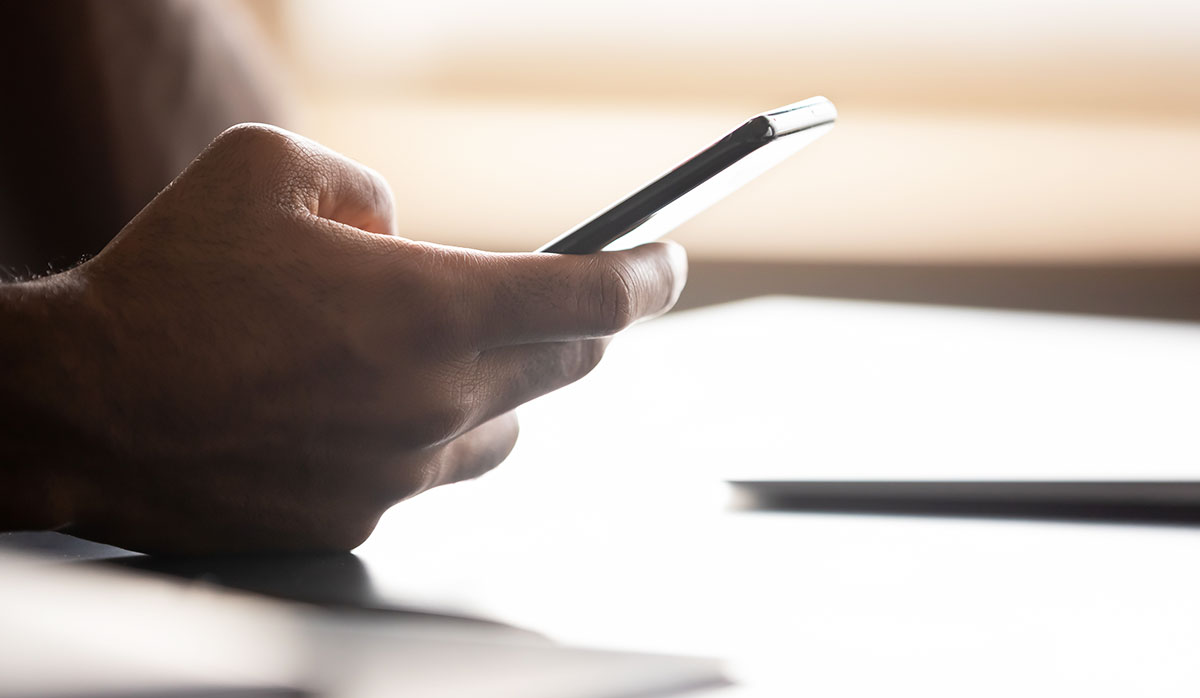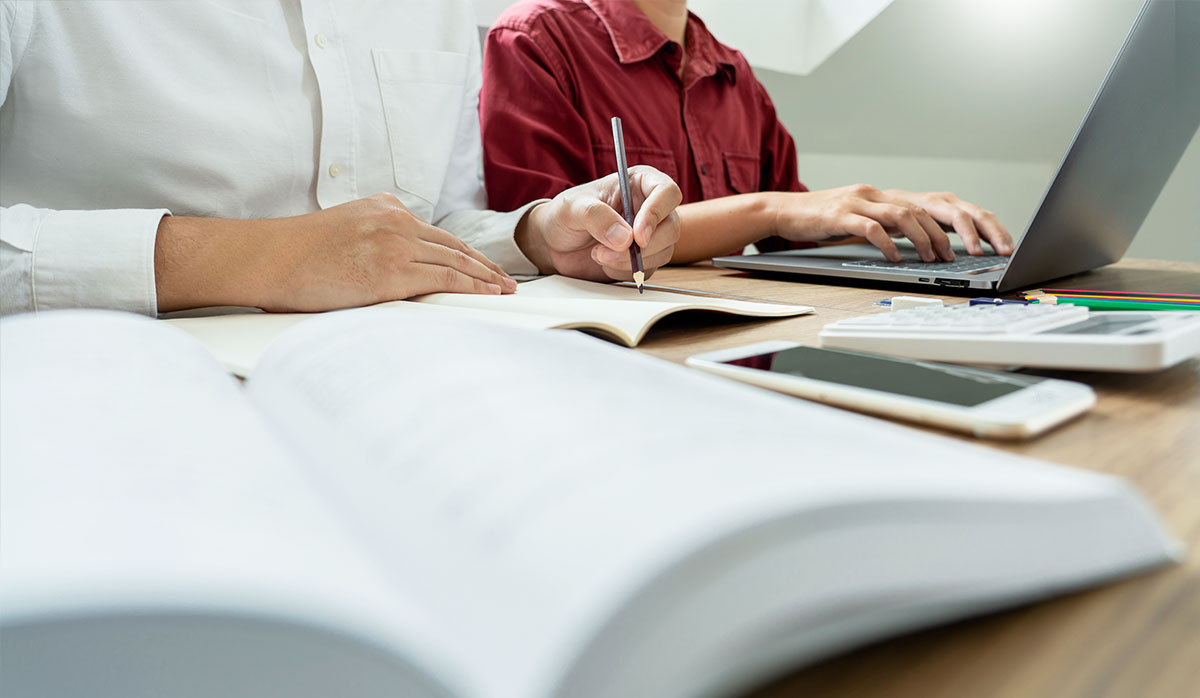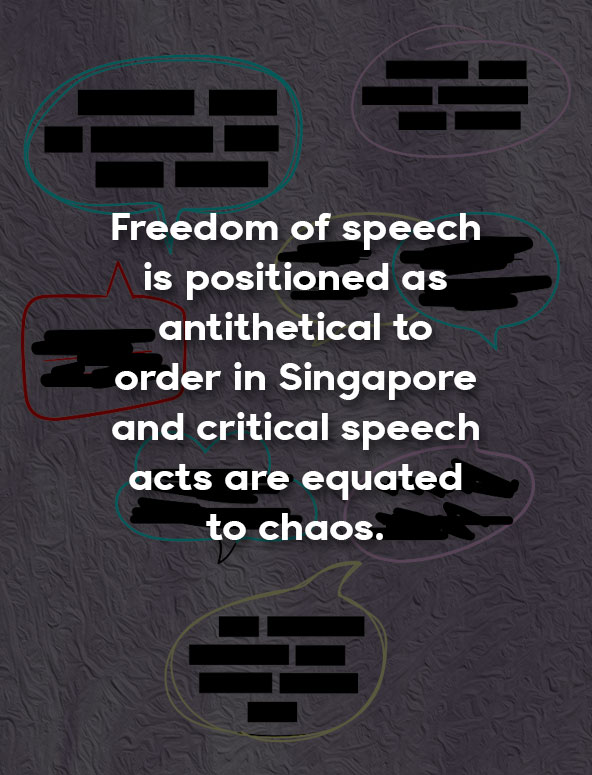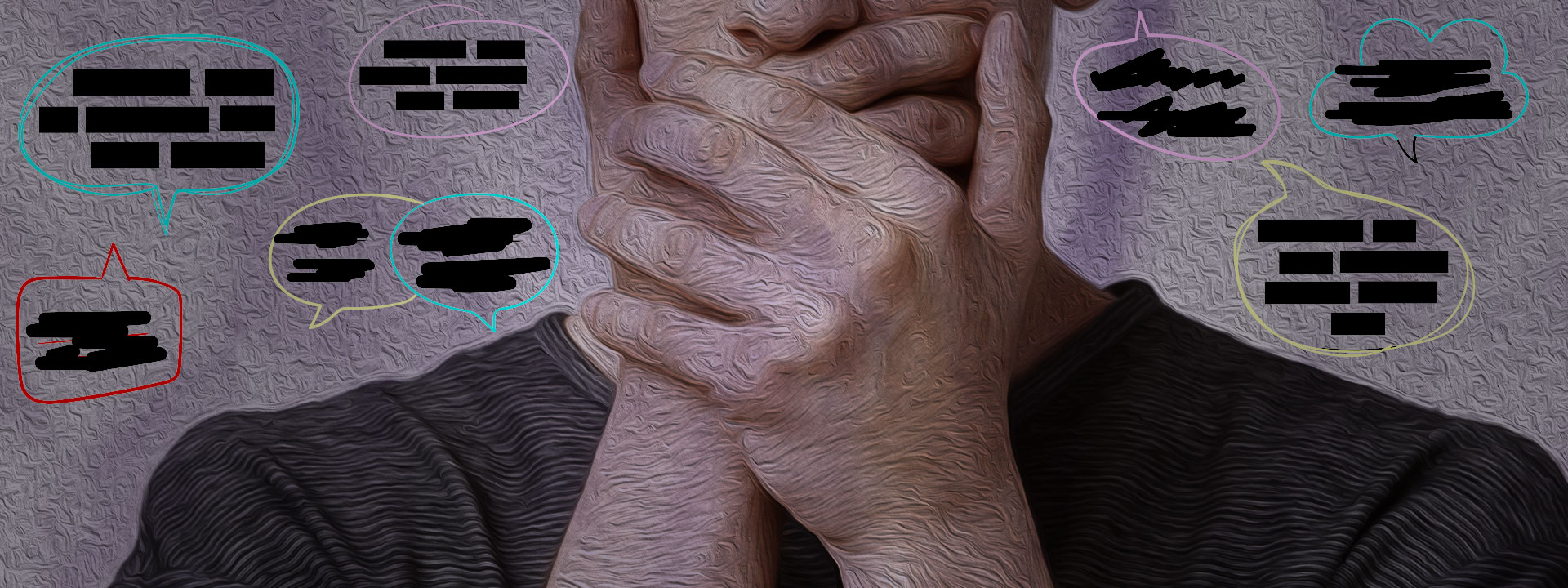“To think, to think, even with a split second left — to think was the only hope.”
― George Orwell, 1984
Self-censorship can be defined as an act or phenomenon that occurs in the absence of formal censorship. Scholars define it as “the act of intentionally and voluntarily withholding information from others in the absence of formal obstacles.” Self-censorship tends to be practiced by people in their daily lives. There are things one wouldn’t say in front of the boss that they would with partners or friends. A newspaper’s editor might shy away from publishing content critical of its advertisers. As such, it remains a common form of control over one’s expressions depending on time, place, and company.
But when it comes to political speech, self-censorship among the citizenry and the press has far-reaching, detrimental effects for a democracy. In such cases, self-censorship is often the result of state censorship and of the fear of reprisal. In countries like Singapore, self-censorship by the press and people exists along with the citizenry’s apathy toward politics in general, as a direct result of the policies of the ruling People’s Action Party (PAP).
Singaporeans are well known for toeing the line, and their self-censorship is part of their distaste for “rocking the boat.” James Gomez, in his book Self-censorship: Singapore’s Shame, identifies three reasons behind the Singaporean tendency toward self-censorship: ethnicity, economic interests, and fear. Gomez argues that Singapore, with its majority Chinese population and a value system that prioritizes Confucian-style deference to authority, has created a culture of self-censorship where citizens view editing themselves as part of their civic duty. Furthermore, Gomez asserts, the PAP and the population of Singapore have a patron-client relationship, which leaves Singaporeans feeling grateful for everything the PAP has done for them — which in turn means they are unwilling to engage in criticism of the state. Lastly, Gomez believes that there exists a culture of fear among citizens that further limits their voice.

Ordinary citizens hold back political thoughts as many feel it’s not worth the government backlash.
Muzzling the press
That the Singaporean polity lives under a climate of fear can be taken for granted. Singapore has a long history of political censorship. The government’s favorite strategies include defamation suits and tactics of persecution. In 1994, the International Herald Tribune paid US$678,000 to Singapore’s top three public officials for implying that Lee Hsien Loong might have gotten his job as prime minister through nepotism — not entirely an unfair conclusion to come to, considering he is the second son of the country’s first premier, Lee Kuan Yew. Almost two decades later in 2010, the New York Times had to apologize and pay damages of US$114,000 to PAP leaders, again for referring to Singapore’s Lee dynasty.
It is not just the foreign press that is muzzled this way. Defamation suits against opposition politics in Singapore are almost expected by the country’s citizens because bankruptcy is the Lee government’s main tactic to get rid of political opponents. The PAP has successfully sued — with the aid of a judiciary that is far from being independent — political opponents such as J.B. Jeyaratnam, Chee Soon Juan, and Tang Liang Hong, and even activists and bloggers such as Roy Ngerng and Leong Sze Hian.
In a climate where state leaders can use their immense power, privilege, and influence to bend the entire political and legal system to their will, ordinary citizens look at the fate of those with power far exceeding theirs, and do not consider speaking up or having a contrary opinion to be worth the immense backlash they have seen others receive. When even foreign media like the NYT can be cowed by the long reach of the Lees’ political arm, it is no wonder that Singaporean citizens do not feel that they can express any dissenting opinion. Aside from being in fear of such state reprisal, most of them realize that, unlike the NYT, they do not have vast resources and cannot assemble a large legal team to protect them.
There is also nothing resembling a free press in the country to check the state. In the 2021 World Press Freedom Index put together by Reporters Without Borders (RSF), Singapore is ranked 160 out of 180 countries. This means Singapore is in the bottom 20 nations when it comes to press freedom, along with the likes of Tajikistan (162), Yemen (169), and China (177). RSF classifies Singapore as “very bad,” saying that it “does not fall far short of China when it comes to suppressing media freedom.” The Singaporean media are not seen as the fourth estate or as watchdogs of the state. Instead, the Singapore press are required to play a role in nation-building, which includes using the media as a way to manufacture public consent for policies and laws that the PAP wants to push through. This role includes being protector and defender of state leaders, their speech, and actions. It is similar to the concept of “river-crabbing,” a term invented by Chinese netizens to explain how internet censorship in China is enforced for the sake of “harmonizing” society.

Many Singaporean academics also regularly censor themselves to keep their jobs.
Singapore has often been called a “nanny state,” or alternatively by those who are less kind, a “police state.” Singaporean journalists are clear as to where the “out-of-bound” markers are, and they tend to stay away from what the state has deemed as “sensitive issues,” i.e. those that cannot and should not be spoken about in the public space. Marlon Alexander, an editorial director for the Filipino Connection, recounts how unwilling Singaporean journalists were to be interviewed by him, with a friend even advising him that interviewing someone on the street could see him “arrested on suspicion of being a terrorist.” In this case, no one needed to tell the journalists that they should be careful — they censored themselves willingly even before an issue could arise. There was no direct state intervention here because they understood how the Singapore system worked: you simply do not talk about certain things.
Apocalypse now, the Singaporean version
Speech critical of the state is purposefully misunderstood and catastrophized, i.e., it would mean the end of the Singaporean way of life. The state encourages this kind of apocalyptic thinking by constantly building a climate of fear of what could happen should the PAP not be at the helm of Singapore anymore. Because, apparently, any criticism of the PAP will lead to its end. Disapproval of the PAP is framed as lies, fake news, or the actions of actors wanting to destroy the very fabric of Singapore society.
In this way, freedom of speech is positioned as antithetical to order in Singapore, and critical speech acts are equated to chaos. Again, it is no wonder that Singaporeans, faced with the possible accusation of the destruction of Singapore itself, seek to stop themselves from saying anything that could be misconstrued.
This kind of self-limiting has gotten worse as the state steps up its ability to profile and charge anyone, including foreign citizens, for “fake news.” In 2019, the Singapore parliament passed the Protection from Online Falsehoods and Manipulation Bill (POFMA). The bill has heightened both censorship and self-censorship, especially with regard to academics. This prompted academics to write a letter to then Minister of Education Ong Ke Yung in which they said that the bill would have detrimental effects on academia. They also noted that many Singaporean academics agreed with the letter privately, but refused to sign it for fear of “compromising (their) career prospects.”

Singaporean academics regularly censor themselves in order to keep their livelihoods because they know that studies critical of the government can be grounds for their dismissal. Singaporean academic Cherian George, who is currently a professor in the Department of Journalism at Hong Kong Baptist University, was denied tenure twice by the Nanyang Technological University (NTU) due to his political beliefs. He was later smeared in the domestic press with insinuations that he left because he was unable to meet NTU’s academic standards. The case of George is just the most well-known of these cases of academic censure for political reasons, but there are many academics who see what happens to anyone who steps out of line, and they fastidiously make sure their work never comes close to even brushing against that line. On POFMA itself, George has said that it will have the effect of “solidifying Singapore’s culture of self-censorship,” underlining that self-censorship already exists.
Truth, as seen by the state
Singaporean citizens have seen people and organizations lose to the state over and over again. The state is too strong, and so people would rather self-censor than be caught in a situation where they are forced to stand alone in front of a behemoth with unfettered power. Most citizens cannot hope to go against a government that controls every aspect of society. There is no corner of Singapore that will support them should they be the target of the state. No legal means or lawful actions will ever contradict the state.
In George Orwell’s seminal book, 1984, citizens of the fictional Oceania censor themselves in every way due to immense fear and propaganda by the state. It is not enough to never speak critically; they are required to censor themselves from even thinking politically unacceptable thoughts, which become “thoughtcrimes.” When the state says that “2+2=5,” citizens are required to accept this as truth. Orwell was thinking of Britain when he published the novel in 1949; nearly a quarter into the 21st century, it manages to succinctly encapsulate the Singapore citizenry and its press.
Whatever the state and ruling party say becomes the accepted, and only approved, truth in Singapore. This is a state that decided for itself what “fake news” is, and prosecutes people who disagree. How does one protect itself in a state such as this? By making sure that you never utter a word out of place. State censorship is not necessary anymore; people know exactly what they are and are not allowed to say, and what topics they are allowed to speak about publicly. The state does not need to monitor its citizenry when the citizens monitor each other and themselves, all so as to never meet the fate of those who have deviated from the prescribed course.
In Singapore, self-censorship is a form of self-defense. After all, when you are always afraid, you are always watchful. ●
Sangeetha Thanapal is a Singaporean social critic and activist who is currently based in Australia.



















